Uzbekistan: civil society institutions — a bridge between society and state[Over]  Anvarjon Mirkomilov, Head of Department Anvarjon Mirkomilov, Head of Department
Development Strategy Center
Today, civil society institutions, particularly non-governmental non-profit organizations (NGOs), play an active role in Uzbekistan's development and the implementation of the “Uzbekistan – 2030” strategy. It is impossible to build a new Uzbekistan without organizing the activities of NGOs, the most important institution of civil society, according to democratic principles. On this basis, effective work is being done to support NGOs and civil society institutions, strengthen social partnerships with state bodies, implement effective public oversight, and improve the legal framework governing this area.
READ MORE
Shavkat Mirziyoyev: “I devote my life to the Uzbek Nation”[Over] 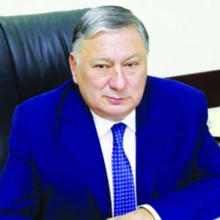 Qudratilla Rafikov,
Political scientist Qudratilla Rafikov,
Political scientist
In the speech of our President at a recent meeting with activists of Jizzakh region, one point caught the attention of most of the people. In it, the head of state said the following:
"If God gives me health and life, the days will come when we will not have poverty and unemployment. I have devoted seven years of my life to this, created a system for this, created laws, opened the world. I came to this position, so that my people would live well, so that their dreams would come true, so that their children would live in prosperity and be happy, so that their grandchildren would be born healthy, so that medicine would work, schools would work, roads would be smooth...".
READ MORE
Environmental Challenges: The Future of Human Rights and Sustainable Solutions in a Changing World[Over]  This is the name of the next topic of the IV Samarkand Forum on Human Rights, a traditional international conference to be held in our country on June 13-14, 2024. It is planned to hold three plenary meetings offline and online within the framework of the forum. This is the name of the next topic of the IV Samarkand Forum on Human Rights, a traditional international conference to be held in our country on June 13-14, 2024. It is planned to hold three plenary meetings offline and online within the framework of the forum.
The main goal of this year's Samarkand forum is to discuss issues related to the impact of climate change on human rights on a broad scale and on the basis of information analysis. In addition to gaining the necessary knowledge in this field, the participants of the international conference will have the opportunity to exchange experience and get acquainted with the best practices within the international community.
READ MORE
The South Caucasus amidst shifting geopolitics[Over]  By Vasif HUSEYNOV, PhD, Head of Department, AIR Center, Adjunct Lecturer, ADA and Khazar Universities, Baku By Vasif HUSEYNOV, PhD, Head of Department, AIR Center, Adjunct Lecturer, ADA and Khazar Universities, Baku
There is a growing consensus among some analysts that Western policies towards Russia and China have been a big disaster. Instead of preventing the creation of the Sino-Russo alliance, the West has virtually pushed Russia into the arms of China. The opposite was expected from the United States by many scholars and veteran diplomats, including Henry Kissinger. The United States will have to reach an understanding with China on a new global order to ensure stability, or the world will face a dangerous period like the one which preceded World War One, he said in 2021, two years before he passed away. Against the backdrop of the latest visit of Russia’s President Vladimir Putin to China, which is reported to be the 40th meeting between the leaders of the two countries over the past 10 years, there is enough ground to argue that Washington failed to “reach an understanding with Beijing on a new global order.
READ MORE
Gender Issues in Contemporary Uzbekistan[Over]  Roxila Mardonkulovna Usmanova, Doctoral Student, Institute of Family and Gender Research, Republic of Uzbekistan Roxila Mardonkulovna Usmanova, Doctoral Student, Institute of Family and Gender Research, Republic of Uzbekistan
Special attention is being paid to further enhancing the status of women in the new Uzbek society and ensuring their rights as a priority value. Gender equality is recognized as a social phenomenon that permeates all aspects of the life and activities of society, encompassing politics, economics, law, ideology, culture, education, and science, shaping the dynamics between women and men. In the words of the President of the Republic of Uzbekistan, Shavkat Mirziyoev, "The stereotype formed in the minds of our people makes me think about many things. Traditionally, we perceive a woman first and foremost as a mother, a keeper of the family hearth. This is undoubtedly true. However, today not every woman should not be just an observer, she should be an active and proactive participant in the democratic changes taking place in the country." Therefore, it can be asserted without exaggeration that in recent years, increasing the political, social, and economic engagement of women in Uzbek society has emerged as a top priority of state policy, driven by the political will of the Uzbekistani leadership.
READ MORE
Armenia and Azerbaijan Step Up Work on Peace Deal[Over]  By Vasif HUSEYNOV, PhD, Head of Department, AIR Center, Adjunct Lecturer, ADA and Khazar Universities, Baku By Vasif HUSEYNOV, PhD, Head of Department, AIR Center, Adjunct Lecturer, ADA and Khazar Universities, Baku
On May 10 and 11, the foreign ministers of Armenia and Azerbaijan, Ararat Mirzoyan and Jeyhun Bayramov, respectively, met for another round of bilateral peace negotiations in Almaty, Kazakhstan. It was the second meeting this year between the two sides after meeting in Berlin on February 28 and 29. The Almaty talks came after the initiation of the delimitation process on the Armenian-Azerbaijani interstate border, with the return of four non-enclave villages to Azerbaijan in April (see EDM, April 17, 23, May 14). The act was celebrated by some as the first instance in the post-Soviet era of a peaceful resolution in the long-standing territorial disputes between the two countries (Azertag.az, April 19; State.gov, April 28). The two parties hope to build on this progress and foster a constructive atmosphere during the talks in Almaty. These developments point to progress in the peace process between Armenia and Azerbaijan, demonstrating both sides’ willingness to pursue improved relations.
READ MORE
Human resources development and management system in new Uzbekistan[Over]  The ongoing reform to enhance the democratic state governance system in New Uzbekistan is being implemented under the principle of "The state serves the people, not vice versa." The ongoing reform to enhance the democratic state governance system in New Uzbekistan is being implemented under the principle of "The state serves the people, not vice versa."
Indeed, today, social advancement is inseparable from the consolidation of the state, fostering active societal engagement, shaping positive attitudes of the state servant towards society, serving the people, ensuring individual satisfaction, promoting honesty, and establishing justice, all of which are essential in modernizing social progress. The enactment of the Law "On Public Service" represents another example of the people-oriented policy pursued by our President.
READ MORE
Reflection on the “Friends of Armenia Network” white paper[Over]  By Yeghia TASHJIAN, Beirut-based regional analyst and researcher, columnist, "The Armenian Weekly” By Yeghia TASHJIAN, Beirut-based regional analyst and researcher, columnist, "The Armenian Weekly”
On March 27, 2024, a high-level group named “Friends of Armenia Network” headed by the former Danish Prime Minister and NATO Secretary General Anders Fogh Rasmussen published a white paper aiming to “galvanize support for democratic Armenia and promote peace in South Caucasus.” The title of the paper is “Deepening EU-Armenia Relations: More Europe in Armenia; More Armenia in Europe,” and the authors include former prime ministers, European parliamentarians and diplomats.
“Armenia is pivoting to the West,” the paper argues, and the EU has a strategic and value-based interest in supporting this pivot. To succeed, both Yerevan and Brussels need to make a “substantial, long-term strategic commitment in terms of resources, security cooperation, trade relations, and political engagement.” To make this pivot “irreversible,” the EU must grant Armenia “EU candidate status,” which would match Yerevan’s strategic orientation, back up its geopolitical commitments and minimize the impact of Moscow’s reaction to Yerevan by increasing the latter’s resilience.
READ MORE
Address by President of the Republic of Uzbekistan Shavkat Mirziyoyev at the Third Tashkent International Investment Forum[Over] 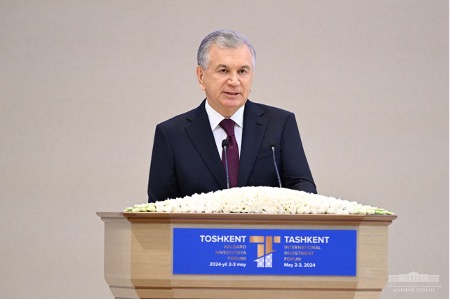 Dear participants of the forum! Dear participants of the forum!
Ladies and gentlemen!
At the outset, let me sincerely welcome you at the third Tashkent International Investment Forum.
I would like to note with pleasure that within the framework of this format, which is becoming a great annual tradition, new and reliable partners from all continents of the world are gathering in our country. Over the past three years, this Forum has provided a broad platform for enhancing collaboration, discussing pressing issues, and generating fruitful ideas and solutions to tackle the most urgent challenges.
READ MORE
Uzbekistan-Tajikistan: commitment to deepening cooperation based on principles of good-neighborliness and mutual trust[Over] 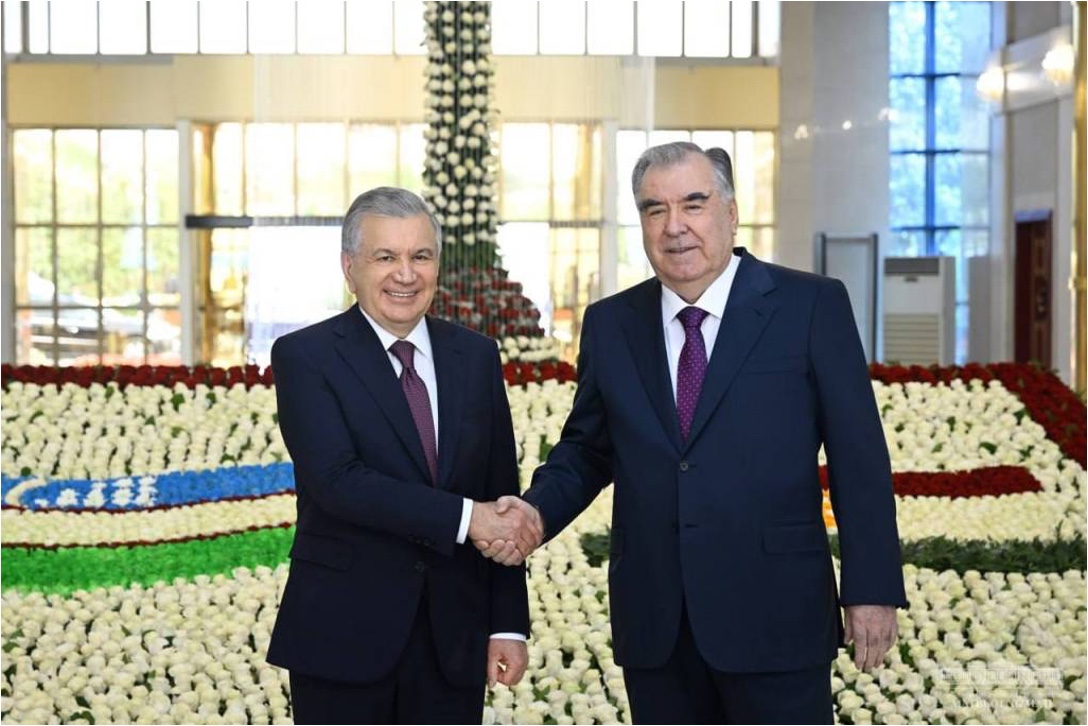 President Shavkat Mirziyoyev will pay a state visit to Tajikistan on April 18-19 at the invitation of President Emomali Rahmon. President Shavkat Mirziyoyev will pay a state visit to Tajikistan on April 18-19 at the invitation of President Emomali Rahmon.
As close neighbors whose peoples are historically and culturally inseparable from each other, Uzbekistan and Tajikistan have brought their relations to the level of strategic partnership and alliance.
The close and constructive political dialog established between the leaders of the two countries, supported by regular bilateral and multilateral meetings, plays a huge role in the development of mutually beneficial and fruitful cooperation.
READ MORE
Geopolitics of the South Caucasus Intensifies[Over]  By Vasif HUSEYNOV, PhD, Head of Department, AIR Center, Adjunct Lecturer, ADA and Khazar Universities, Baku By Vasif HUSEYNOV, PhD, Head of Department, AIR Center, Adjunct Lecturer, ADA and Khazar Universities, Baku
From March 17 to 19, Jens Stoltenberg, secretary-general of the North Atlantic Treaty Organization (NATO), embarked on his first tour of the South Caucasus, visiting Georgia, Armenia, and Azerbaijan (NATO, March 19). During this tour, he engaged with each country’s political leadership. In Azerbaijan, he also met with the defence and foreign ministers. Stoltenberg’s visit occurred amid deteriorating relations between Russia and Armenia, an ongoing stalemate in the Armenian-Azerbaijani peace process, and political uncertainty in Georgia before parliamentary elections in October 2024. Each one of these situations points toward the possibility of renewed confrontation and prolonged instability in the South Caucasus.
READ MORE
Remember Kazan, for history can repeat itself[Over]  By Benyamin POGHOSYAN, PhD, Chairman, Center for Political and Economic Strategic Studies By Benyamin POGHOSYAN, PhD, Chairman, Center for Political and Economic Strategic Studies
The September 2023 military takeover of Nagorno-Karabakh by Azerbaijan was a watershed moment in the conflict. Azerbaijan achieved a decisive victory by force, defying decades-long widespread perception among OSCE Co-chair countries and other actors that the conflict had no military solution. Many expected that the demise of the self-proclaimed Nagorno-Karabakh Republic would pave the way for the Armenia – Azerbaijan peace agreement, thus bringing long-awaited stability to the region. However, it appeared that the issue of Nagorno-Karabakh was only one part of the bigger puzzle of Armenia–Azerbaijan relations. After September 2023, Azerbaijan brought back the narrative of a corridor via Armenia to connect Azerbaijan with Nakhichevan, despite the fact that there was no Lachin corridor anymore connecting Armenia with Nagorno-Karabakh and started to highlight the necessity to change the Armenian constitution and other laws
READ MORE
Armenia must not ignore developments in the Middle East[Over]  By Yeghia TASHJIAN, Beirut-based regional analyst and researcher, columnist, "The Armenian Weekly” By Yeghia TASHJIAN, Beirut-based regional analyst and researcher, columnist, "The Armenian Weekly”
The South Caucasus will be the epicentre of any political or economic friction between Russia and the Middle East. The region, located along the International North-South Transport Corridor, is the most feasible gateway to connect Russia to the Middle East. Russia’s increasing economic and political interaction and involvement in the Middle East will further enhance its dependency on Azerbaijan, due to its bridging location, and Turkey, its partner in addressing upheavals in the Arab region. These two factors may push Russia to pressure Armenia to agree on the implementation of article nine of the November 10, 2020, trilateral statement on unblocking economic and transport communications in the region and deploying Russian border guards to control the transit road connecting Azerbaijan to its Nakhichevan exclave. By doing so, Russia assumes it would increase its leverage on the main actors in the region that will use the transit route connecting Europe to China. The main actor within this context is Turkey, which aims to use the shortest route (compared to the Azerbaijan-Georgia-Turkey route) to trade with the Central Asian republics and beyond.
READ MORE
Is Aliyev sincere in his peace plans?[Over]  By Yeghia TASHJIAN, Beirut-based regional analyst and researcher, columnist, "The Armenian Weekly” By Yeghia TASHJIAN, Beirut-based regional analyst and researcher, columnist, "The Armenian Weekly”
On January 10, 2024, Azerbaijan’s President Ilham Aliyev gave a 2.5-hour interview with local TV channels. In his interview, Aliyev not only repeated false remarks and justified the ethnic cleansing of the Armenians of Artsakh but also threatened Armenia. When it comes to delimiting and demarcating the Armenia-Azerbaijan border, he rejected the old Soviet maps proposed by Armenia, arguing, “In the 20th century, the lands of Azerbaijan were given to Armenia in parts. One day after the establishment of the Azerbaijan People’s Republic in 1918, the ancient Azerbaijani city of Erevan was handed over to Armenia. After the Sovietization in April 1920, in November, the Soviet government took the bigger part of Western Zangezur from Azerbaijan and handed it over to Armenia. By May 1969, Azerbaijani lands were given to Armenia in parts, and from an area of about 100,000 square kilometres, it dropped to 86,600 square kilometres.”
READ MORE
Is Azerbaijan Interested in Peace?[Over]  By Benyamin POGHOSYAN, PhD, Chairman, Center for Political and Economic Strategic Studies By Benyamin POGHOSYAN, PhD, Chairman, Center for Political and Economic Strategic Studies
After the military takeover of Nagorno-Karabakh by Azerbaijan in September 2023 and the forced displacement of the Armenians who lived there, there were hopes in Armenia and abroad that an Armenia-Azerbaijan peace agreement was within reach. These hopes were based on the assumption that Azerbaijan had achieved its primary objective for the past 30 years: the full absorption of Nagorno-Karabakh into Azerbaijan without any Armenian claims over the region.
Since September 2023, Azerbaijan has controlled all of Nagorno-Karabakh, with only a handful of Armenians remaining there. The Armenian government has accepted this reality and has no intention of challenging it. Meanwhile, Azerbaijan has faced no repercussions from the US, the EU, or Russia for imposing a blockade on Nagorno-Karabakh in December 2022, ignoring the orders of the International Court of Justice, launching a military attack in September 2023, or forcing all Armenians to leave the region. It seemed that the time for peace had thus arrived – a peace that would formalize Azerbaijani control over Nagorno-Karabakh, settle relations with Armenia, and open the way for the normalization of relations between Armenia and Turkey.
READ MORE
What Does Azerbaijan Want? [Over]  By Benyamin POGHOSYAN, PhD, Chairman, Center for Political and Economic Strategic Studies By Benyamin POGHOSYAN, PhD, Chairman, Center for Political and Economic Strategic Studies
After the military takeover of Nagorno Karabakh by Azerbaijan in September 2023 and the forced displacement of Armenians, there were some hopes in Armenia and abroad that an Armenia – Azerbaijan peace agreement was within reach. These hopes were based on the assumption that Azerbaijan received everything it could dream of just a few years ago.
After September 2023, Azerbaijan controlled the entire Nagorno-Karabakh, with only a handful of Armenians remaining there. The Armenian government accepted that reality with no intention to challenge it, while the international community did nothing tangible to punish Azerbaijan or create conditions to bring Armenians back. President Ilham Aliyev proved to everyone that he was not a “golden boy” who became president just because he was the son of a prominent leader – Heydar Aliyev – and lacked basic governance skills. He succeeded where his father failed, taking control over Nagorno Karabakh and raising Azerbaijani flags in Shushi and Stepanakert.
READ MORE
- February 17, 2024 07:43AM
Uzbekistan is creating its own model for combating corruption[Over] 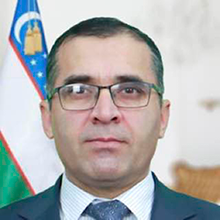 Qodir Djuraev, MP, Legislative Chamber of Oliy Majlis (national parliament) of the Republic of Uzbekistan
Qodir Djuraev, MP, Legislative Chamber of Oliy Majlis (national parliament) of the Republic of Uzbekistan
One of the most crucial issues in the rapidly changing world is undoubtedly corruption. The human history suggests that this phenomenon brought even the most powerful nations to the brink of collapse.
Corruption is a perilous misfortune with negative impact on the entire human race, on foundation of any state and society, economic development; it undermines rule of law and sharply weakens public confidence in government, hinders advancement of democratic institutions.
Unfortunately, this problem has not been alien Uzbekistan. Until very recently, the latter had been known as one of those countries with highest perceptions of corruption.
READ MORE
Two years of war in Ukraine: What should the South Caucasus expect now?[Over]  By Benyamin POGHOSYAN, PhD, Chairman, Center for Political and Economic Strategic Studies By Benyamin POGHOSYAN, PhD, Chairman, Center for Political and Economic Strategic Studies
In just one month, the world will mark the second anniversary of the Russian-Ukrainian war. During this period, assessments on the course and possible outcomes of the war underwent significant changes several times. At the end of February 2022, almost everyone was sure that the war would end very quickly with Russia’s victory, bringing a change of government in Ukraine, with President Volodymyr Zelensky replaced by a pro-Russian figure. Already in September 2022, after successful Ukrainian counter-offensives in the Kherson and Kharkiv regions, expectations changed dramatically. This time, many were sure of Russia’s imminent defeat.
READ MORE
Geopolitical Initiatives: The Example Of BRICS[Over]  By Nika CHITADZE, PhD, Director of the Center for International Studies, Tbilisi By Nika CHITADZE, PhD, Director of the Center for International Studies, Tbilisi
BRICS is an acronym for the top five emerging (except Russia) economies: Brazil, Russia, India, China, and South Africa. The first four were originally grouped as “BRIC” (or “BRIC”) in 2001, and South Africa joined in 2010. BRICS was created to draw attention to investment opportunities and was not an official intergovernmental organization. Since 2009, they have increasingly evolved into a more cohesive geopolitical bloc, with governments meeting annually at official summits and coordinating multilateral policies. On July 24, 2022, China hosted the 14th BRICS summit and in August 2023, the summit was held in South Africa.
BRICS is considered the main rival of the G7 bloc of advanced economies, having announced competing initiatives such as the New Development Bank, the Contingent Reserve Facility, the BRICS payment system, and the BRICS reserve currency. Since 2022, the group has been looking to expand membership and several developing countries have expressed interest in joining.
READ MORE
- December 20, 2023 16:40PM
Strategic Abstention: The ‘Axis of Resistance’ Deliberate Inaction in Gaza[Over]
 By Fuad SHAHBAZOV, Baku-based independent regional security and defence analyst By Fuad SHAHBAZOV, Baku-based independent regional security and defence analyst
Amid the escalating Gaza war, a striking absence marks the regional conflict landscape: the non-involvement of the ‘Axis of Resistance,’ including Iran and its proxies. Nearly six weeks into the war, these forces have consistently communicated their decision to remain on the sidelines. This inaction comes into sharp focus against the backdrop of Iran’s strategy to leverage non-state actors like Hezbollah and Hamas in its proxy warfare. While Hezbollah’s leader, Hassan Nasrallah, clarified their stance in a much-anticipated speech a month into the conflict, the impact of this abstention is profound. Israel, grappling with internal divisions and security vulnerabilities heightened by Hamas’s attacks, finds itself in a precarious position not seen in decades.
READ MORE
Location, Location, Location! Or Maybe Not![Over]  By Benyamin POGHOSYAN, PhD, Chairman, Center for Political and Economic Strategic Studies By Benyamin POGHOSYAN, PhD, Chairman, Center for Political and Economic Strategic Studies
It may appear that the primary obstacle to the signature of a peace treaty between Armenia and Azerbaijan is the different views of the sides on where to resume and finalize the process. Armenia wants to do that in Western platforms, while Azerbaijan wants to return to the Russian platform, use the 3+2 format, or have direct negotiations without any mediators. In reality, the roots of the current situation are more profound than simple geopolitical choices of venue.”
The military takeover of the self–proclaimed Nagorno Karabakh Republic by Azerbaijan has raised hopes that it may facilitate the signature of the peace agreement between Armenia and Azerbaijan. The logic behind this thinking was clear – the future of Nagorno Karabakh, and the fate of the Armenians living were the primary obstacles on the road toward peace. As all Armenians were forced to leave the region, and NKR de facto president Samvel Shahramanyan signed a decree about the dissolution of the republic by the end of 2023, it seemed that the stage was set for quick signature of the Armenia – Azerbaijan peace treaty, and then a push forward in the Armenia – Turkey normalization process.
READ MORE
Turkey Supports Azerbaijan’s Operation in Karabakh[Over]
 By Fuad SHAHBAZOV, Baku-based independent regional security and defence analyst By Fuad SHAHBAZOV, Baku-based independent regional security and defence analyst
On September 19, Azerbaijan launched an “anti-terrorist operation” in the Karabakh region against armed separatist forces. The operation followed three years of largely unproductive peace talks between Armenian and Azerbaijan following the Second Karabakh War in 2020. The clashes ended in a ceasefire after only one day due to the separatist regime’s limited military-technical capacity in resisting the well-equipped Azerbaijani Armed Forces.
Baku’s allies were quick to applaud the move. For example, Turkish President Recep Tayyip Erdogan, during a joint news conference with Azerbaijani President Ilham Aliyev, declared, “It is a matter of pride that the operation was successfully completed in a short period of time, with utmost sensitivity to the rights of civilians”. Turkey has traditionally been a staunch ally of Azerbaijan, and the recent military operation to reclaim Karabakh plays into Ankara’s regional interests, especially regarding the future development and opening of the Zangezur Corridor.
READ MORE
- November 28, 2023 07:40AM
US-Turkey Relations: Biden Navigates Difficulties with Erdogan[Over] 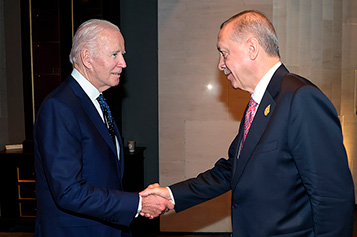 By Eugene KOGAN, Tbilisi-based defence and security expert By Eugene KOGAN, Tbilisi-based defence and security expert
Since the inauguration of President Biden in January 2021, the US administration has kept its relationship with Turkey to a bare minimum. For the Biden administration, the issue of human rights in Turkey remains very much on the agenda while for President Erdoğan, the issue seems to be a lower priority for his administration. Such behaviour infuriates not just Biden administration officials but also members of the House and the Senate. This has resulted in the Turkish president not being invited to Washington. Perhaps the two sides can each be blamed for their current relationship; however, Erdoğan is maintaining his course and appears unbothered by the consequences. For his part, Biden is keeping his cool despite a number of divergences in interests of the US and Turkey. READ MORE
Turkey’s Pivot West Disrupts Relations With Russia[Over]
 By Fuad SHAHBAZOV, Baku-based independent regional security and defence analyst By Fuad SHAHBAZOV, Baku-based independent regional security and defence analyst
On July 9, Turkey freed the commanders of the well-known Ukrainian Azov regiment after months of hosting them as a part of a deal with Russia. The fighters surrendered to Russian forces after weeks of brutal siege and resistance at the Azovstal Iron and Steel Works in Mariupol, even after the rest of the city had fallen following Russia’s devastating and relentless assaults. Ankara’s surprise move came during Ukrainian President Volodymyr Zelenskyy’s first official visit to Turkey since the Russian invasion in February 2022 to meet his counterpart, President Recep Tayyip Erdogan, and discuss the possibilities of deepening their strategic partnership. Amid rhetoric on expanding the two countries’ cooperation in defense and security, Erdogan also declared, “Ukraine deserves to be a NATO [North Atlantic Treaty Organization] member”.
READ MORE
|
|